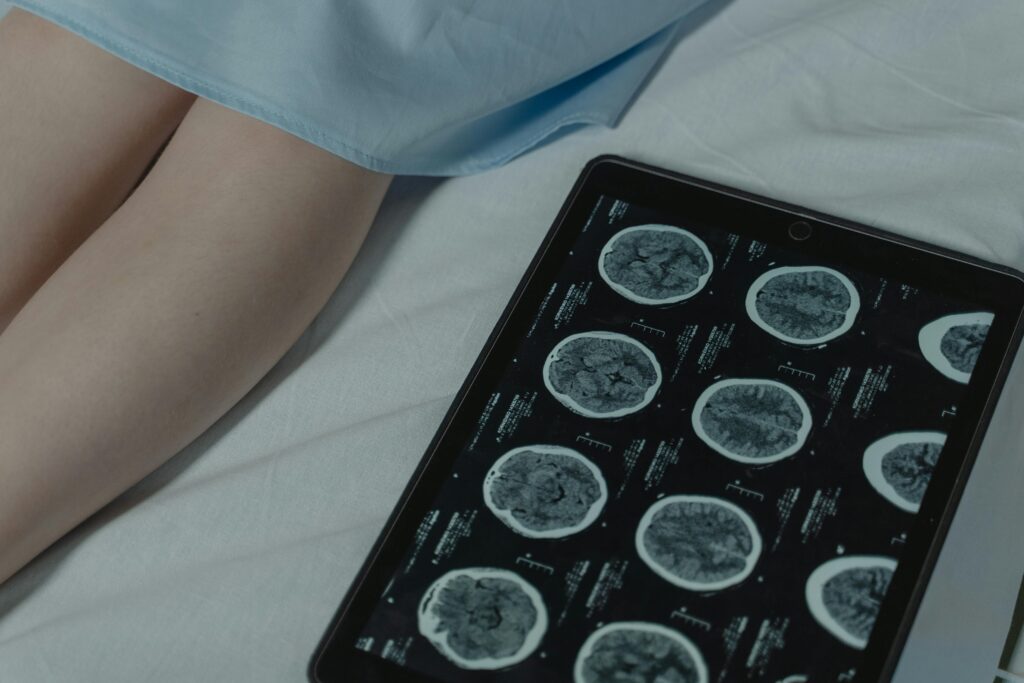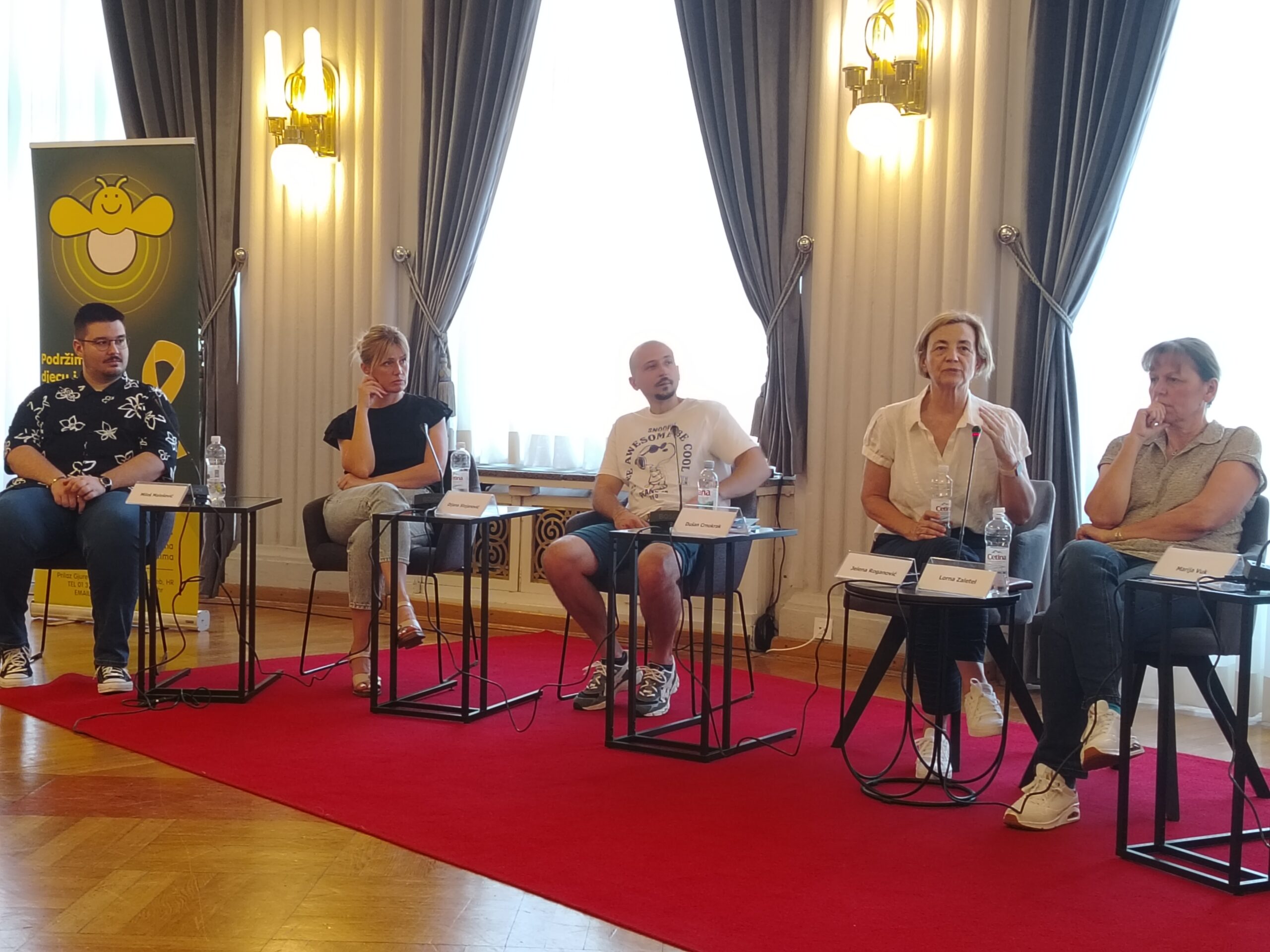
Author: Ivana Vranješ
At a panel discussion in June in the Journalist’s House, experiences were shared about the treatment of malignant diseases in children in the region, and ways to initiate a program for monitoring the consequences of treatment were discussed. The panelists warned that the treatment of malignant diseases in childhood is long-term and complex.
The numerous consequences of such treatment are still insufficiently discussed, and the quality of a person’s life depends on the systematic monitoring of the consequences. Organizations that bring together young people with experience in treatment for malignant diseases are trying to start monitoring the consequences of treatment.
Jelena Roganović, oncologist at the Zagreb Children’s Clinic, said that today around 80% of children and adolescents suffering from malignant diseases are cured. She emphasized that, according to estimates, there are between 300 and 500 thousand adults who were treated for malignant diseases in childhood in Europe. survivors. She mentioned that antitumor therapy in childhood can cause consequences years after the end of the treatment.
“The risks to the health of people who were treated for malignant diseases in childhood are manifold. Chronic damage is numerous and can affect any organ system. Today, we have clear evidence that in people who were treated for malignant diseases in childhood, there is a several times higher frequency of serious complications. Up to 90% of them have some health problem, and about 30% have serious health impairment,” Roganović said.

The consequences of treatment for malignant diseases depend on the type of disease, its extension, and the type of therapy. The most common consequences are in people who were treated for some types of lymphoma and sarcoma in childhood. Roganović also mentioned that secondary malignant tumors appear in treated persons, that is, new types of tumors that are related to the treatment of the primary tumor, the second most frequent are cardiovascular complications, followed by endocrinological complications, and fertility disorders. The consequences are also manifested in mental health.
Roganović referred to the project of monitoring people who were treated for malignant diseases in childhood, and this project is carried out by the Zagreb Clinic for Children’s Diseases. For this purpose, the IT application “Survivorship Passport” was established. The passport contains basic information about the disease, and treatment and provides general recommendations for further monitoring of treated persons.
“We will invite people who have recovered from a malignant disease and, depending on their complaints, we will suggest which tests they need to do,” Roganović said. An algorithm is built into the Passport, and by entering search results, the algorithm will give new recommendations for further monitoring. The passport will be implemented in the national health system.
Slovenian oncologist Lorna Zaletel presented her experiences in the operation of the outpatient clinic for monitoring the late effects of treatment for malignant diseases, which has been in existence in Slovenia for 38 years. People who were treated for malignant diseases in childhood are referred to subspecialists for examination, who are also educated about the late consequences of treatment. The consequences of people who were treated for malignant diseases in childhood in the outpatient clinic, the oncologist, and occupational therapist are monitored every year or every two years depending on the health risks. This monitoring is lifelong. Zaletel concluded that it is difficult to find experts to monitor late effects of treatment, because there are more and more oncology patients whose treatment must be devoted to oncologists, and monitoring late effects requires time.
Marija Vuk, the mother of a sick child, spoke about the treatment of malignant diseases in children in Macedonia. She emphasized that children with cancer are treated only in the clinical center in Skopje, which is a problem for sick children from various parts of Macedonia. Therefore, the children and their parents have to move to Skopje for a long time. Vuk pointed out that success was achieved in the treatment, especially of leukemia. She emphasized that doctors are aware of the late consequences of treatment for malignant diseases in childhood, but they are still not monitored, and Macedonia still does not even have a Cancer Registry.
Dijana Stojanović, president of the “Fenix Montenegro” association, and also the mother of a child treated for a malignant disease, said that until 2013, children from Montenegro were mostly treated in Serbia.
“Since 2017, milder forms of leukemia, i.e. where transplantation is not required, some forms of lymphoma and solid tumors are treated in Podgorica. Of the twenty newly diagnosed annually, some are treated in Podgorica, and some in institutions outside Montenegro,” said Stojanović. In Montenegro, there is no talk of monitoring the late consequences of treatment for malignant diseases in childhood, nor are doctors educated about these consequences. Another one of the countries where the late consequences of treatment for malignant diseases in childhood are not monitored is Serbia.
Dušan Crnokrak, who at the age of 11 overcame a severe form of cancer, Hodgkin’s lymphoma, said that a lot of work still needs to be done to raise public awareness of the importance of monitoring the consequences. He emphasized that the Belgrade association “Čika Boca” played a key role in raising awareness, which published a brochure on the late consequences of treatment for malignant diseases in childhood. This association provides support to young people and children with cancer through various programs.
Harun Šabić from the Sarajevo association “Heart for Children with Cancer”, who was diagnosed with osteosarcoma as a high school student, said that children in Bosnia and Herzegovina are treated in clinical centers in Sarajevo, Tuzla, and Banja Luka. All European standards are followed in the treatment.
“When it is necessary to transplant bone marrow, stem cells and some more difficult operations for solid tumors, our children usually go to European countries through the Federal Solidarity Fund. A project to monitor late consequences has also been launched. However, there is currently no targeted system for their monitoring. The transition from pediatric to adult oncology has not yet been solved in the best way, but we hope that it will be solved soon“, Šabić points out.
Lamija Adilović, a young woman from Saraj, told about her battle with lymph node cancer. She fell ill with a vicious disease at the age of 14.
“I was on chemotherapy for six months, and then on maintenance therapy for a year and a half. There are numerous consequences of the treatment. These are arthritis, rapid heart rate, and the result of the treatment is the tumor that I operated on,” said Adilović. She stressed that today she tries to positively accept every situation, and she tries to live a healthy lifestyle. Given that she completed her studies in psychology, she would like to work with people suffering from malignant diseases.
“Working with such people is difficult, mentally exhausting, but we who have gone through the hell of this disease sympathize with them the most,” concluded Adilović.
Cover photo: Tima Miroshnichenko @Pexels